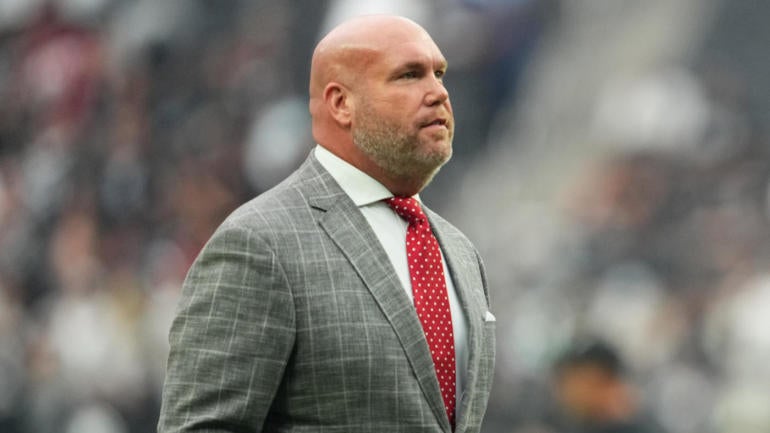
A lot of times, it can be difficult to discern what an NFL general manager is really thinking. There's a lot of incentive, even during press conferences and other public appearances, to obfuscate or otherwise mislead people. Once a general manager loses his job, though, there is less reason to hold things back.
Enter former Arizona Cardinals GM Steve Keim, who let loose with some stuff this week. First of all, Keim was asked why Cardinals wideout DeAndre Hopkins has not yet been traded. Keim seemingly tried to push the blame onto Hopkins, but ended up blaming himself.
"Here's the problem: The problem is his current contract," Keim said during an appearance on former NFL defensive lineman Chris Long's podcast, per a transcription by arizonasports.com. "Hop was his own agent, and I can tell you that wasn't the easiest (negotiation) in the world. Between him and Larry Fitzgerald, that put all the grey on my beard."
If Hopkins' current contract is the problem, that responsibility falls on Keim, as the one who traded for Hopkins and immediately lavished him with a contract extension that reset the market at the wide receiver position. It should, however, be noted that Hopkins' contract is not that onerous, with base salaries of $19.45 million and $14.92 million over the next two seasons. That's extremely affordable for a player of his caliber, and it seems highly likely that a trading team would want to rework the deal in some form or have the Cardinals pick up part of the tab for his salary (as the Texans did when trading Brandin Cooks to the Cowboys) anyway. Keim himself acknowledged all that as well.
"They're probably going to have to come to understand that they're probably not going to get as much as they would if he was a younger player or his contract was considerably lower, where you could get him for a second-round (pick)," Keim said. "It could end up being a second- or third-day draft pick to really get it done. Probably (need to) get a new deal done."

Pick Six Newsletter
Crafted By The Best NFL Experts
Get the day's big stories + fun stuff you love like mock drafts, picks and power rankings.
Thanks for signing up!
Keep an eye on your inbox.
Sorry!
There was an error processing your subscription.
Keim also gave his thoughts on Cardinals quarterback Kyler Murray, and indirectly on the insinuations about Murray's work habits that arose when Arizona included in his contract extension a stipulation about the number of hours he needed to spend watching film, and Cardinals tackle Kelvin Beachum's assertion that Murray needs to mature. (The clause was later removed.)
"He still needs to grow. (Beachum's comments are) not slanted toward his character," Keim said. "He's not a bad guy. He's a good kid, has a good smile, has a nice way about him. I think it's like anything, guys have to continue to learn what it's going to take to be great. Does he know what Tom Brady and Peyton Manning knows of what it takes to be great? No. Does he work? He does work. I think it's just that side of the game, the film study, the attention to detail part that he can continue to improve upon. And I think he will. Kyler's a proud guy, man. He doesn't want to lose and he doesn't want to let people down."
Lastly, Keim addressed the failure of 2016 first-round pick Robert Nkemdiche, who lasted just three seasons in Arizona and picked up only 4.5 sacks and 10 tackles for loss in five NFL seasons.
"Now, in Arizona I drafted Robert Nkemdiche with the (29th) pick overall, who we thought was a top-10 talent," Keim said. "And there were some concerns and questions coming out. At the end of the day, really, the guy in my opinion didn't love football enough. He didn't succeed or play at a high level because he was in love with the process of going through the draft, being the top pick, getting the money. When it was time to grind, that wasn't his focus."
In other words, Keim acknowledges that he was aware of the questions regarding Nkemdiche's "focus" and "grind" and things of that nature, which caused him to tumble down draft boards, took him in the first round anyway, and then blamed those characteristics for Nkemdiche's failures in Arizona. There were a lot of issues with the recent Cardinals teams, but apparently, according to former Cardinals general manager Steve Keim, most of them were not Steve Keim's fault, even if he was responsible for the decisions to led to those problems.
















